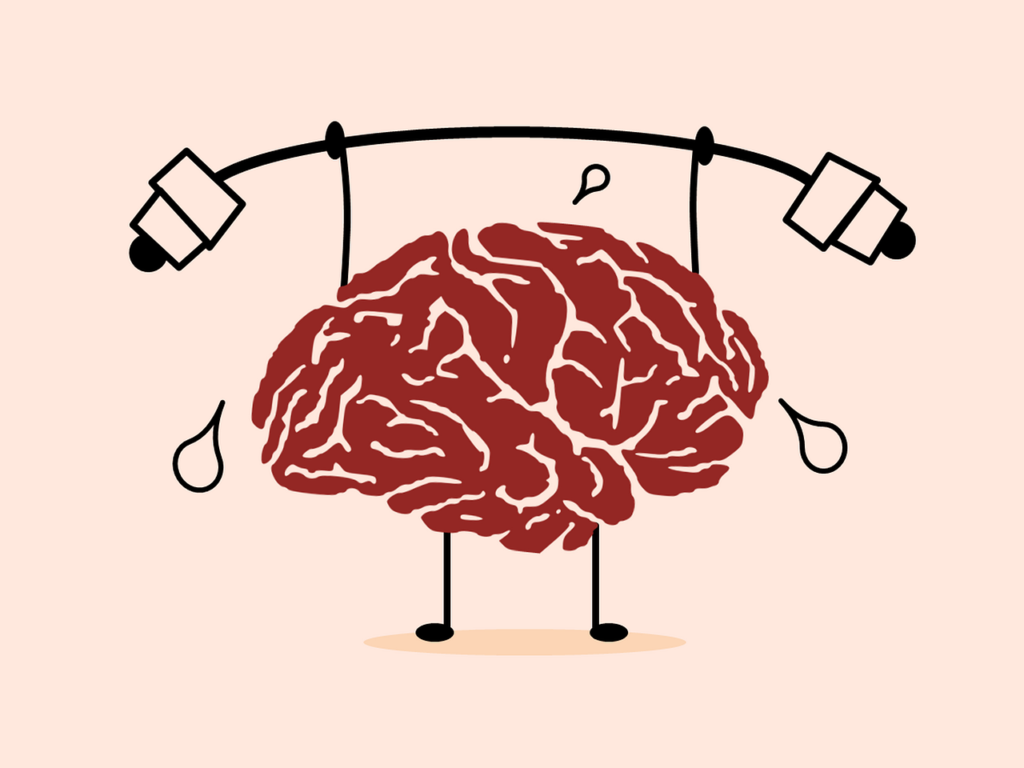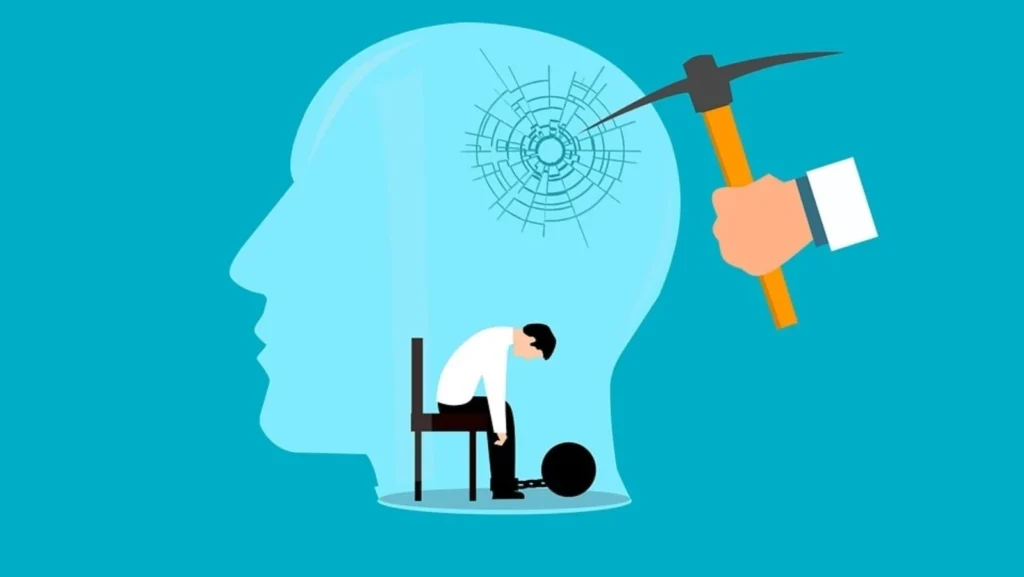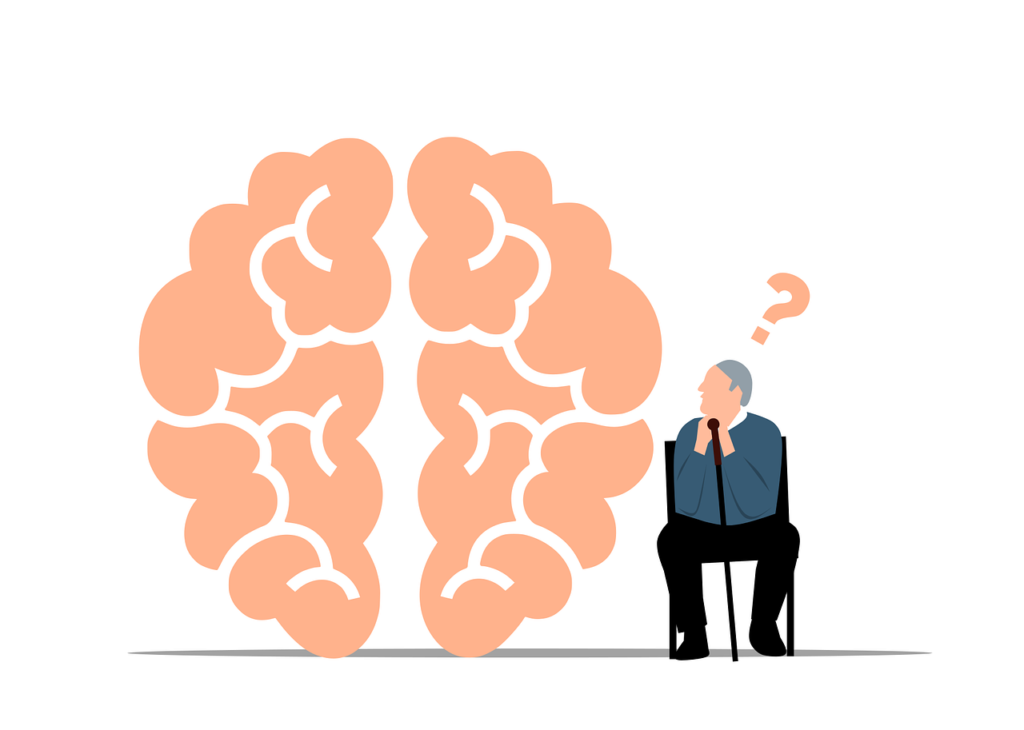“What is wrong with me” is a most frequently asked question time to time. Feeling overburdened, tense, or blocked might lead to brief episodes of self-doubt or even persistent sentiments of inadequacy. Sometimes, you might ask yourself this question because you’re unsure of your ability to survive a particular circumstance.
You can start feeling better by taking certain steps, regardless of what is causing you to feel that something is wrong. It’s also critical to acknowledge and accept that feeling as it arises. Rather, spend some time exploring them while you sit with them. If the idea of doing that seems too much for you to handle, think about discussing your situation with a mental health expert.
Find out more about the reasons behind the question “what’s wrong with me?”
Mental health: what is it?
Mental wellness is the state of being in which your thoughts, emotions, and behavior are all under control. People may encounter a severe disruption in this mental process. When a person experiences difficulty or finds it difficult to function, there may be a mental condition present due to patterns or changes in thought, mood, or behavior. An illness of the mind could impact how well you:

- Sustain ties with family or friends
- Perform in social contexts
- Act at a job or a classroom
- Study at the level that is appropriate for your age and IQ.
- Engage in additional meaningful activities.
- cognitive restructuring
Social norms and cultural standards are important factors in characterizing mental health conditions. To decide when a behavior becomes disruptive or if it is normal, there is no universal metric that can be applied across cultural boundaries. What might be normal in one society
Why You Think there’s something wrong With You
Let’s look at the potential causes before discussing how to deal with the feeling that something is wrong with you. You may sense that something is wrong for a variety of reasons, ranging from brief setbacks in life to a protracted bodily or mental sickness. See if any of the items on the list below speak to you.
Experiencing Too Much
Is your primary thought process being overwhelmed or confused when you consider that something is amiss with you? Or do you believe that you are unable to manage all of your responsibilities and the tasks at hand? It’s possible that you’ll feel like you’re drowning from overwhelm.
Being overburdened is a typical feeling. Occasionally, the sense that anything is wrong with you could simply be the result of a really difficult set of events in your life. It could be the result of an extremely demanding job, a demanding family, financial strain, or any number of other circumstances that make you feel like you can’t keep up with life’s pace.
Having a Stuck Feeling
Do you ever feel that you’re stuck in life and that everyone else seems to have everything figured out while you’re not? Or are you finding it difficult to move on from a job you detest, get over a breakup, or end a poisonous relationship?
You can believe that there is a problem with you if you have preconceived notions about how your life should be and you don’t feel like you are living it.

Being Alone
Loneliness is a significant risk factor for mental health conditions like anxiety and depression and has been connected to long-term health difficulties like heart and lung disease.2.
Feeling lonely or alone can be caused by a variety of things. Maybe your family ties are strained, or maybe you’re nervous about making new friends. Even when you are with your friends or family, loneliness could still be there.
When loneliness makes you feel that there’s something wrong with you, it usually signifies that you have trouble forming meaningful social connections.
Issues with Personal Relationships
Your social life issues may be the cause of your sadness. It’s possible that you feel unsupported by your parents or other close relatives. It’s possible that you’re experiencing problems finding a companion or that you’re still grieving over the end of your last relationship. It could even seem like you’re having trouble connecting with your pals or other members of your immediate social circle.
Issues at Work
Stress at work can be particularly high if you’ve recently moved jobs or positions.
Stress is a typical occurrence at work.3. Taking on excessive obligations, putting in excessive hours at work, or having a backlog of unfinished business can all lead to feelings of stress or inadequacy?
Being Affected by Trauma
You can be going through trauma or recuperating from a traumatic incident if you’ve been wondering what’s wrong with you. This could be blatant trauma, like losing a loved one, being abused, or going through a terrible event in life, like a home fire.
But there are other sneakier ways that trauma can develop, such cohabiting with a narcissistic abuser. Any type of trauma can significantly affect your mental health.4 Seek expert assistance if you are experiencing this.

Having a Medical Illness
Do you feel as though there’s a problem with your body? If your symptoms are new and associated with a documented condition, or if you have symptoms that are not yet recognized or diagnosed, you likely feel disoriented and anxious about what is happening in your body.
It is entirely reasonable to wonder, “What is wrong with me?” in this situation. Often, seeking assistance from a medical practitioner to determine the root of the issue will reveal the solution.
Insufficient Self-Respect
Low self-esteem or low self-worth might occasionally be the root cause of the sense that something is wrong with you. It doesn’t really matter if this emotion is accurate or not; what matters is how you see yourself, and that affects how you think.
A low sense of self-worth or self-esteem will affect every aspect of your life and make you feel inadequate in every way. Finding the essential beliefs that underlie your self-esteem issue—which may be based in guilt or shame—is frequently the first step in finding a solution.
How to cope / feeling better
There are some techniques that are useful in coping
Techniques for Relaxation
It is not unusual to ask yourself, “What is wrong with me?” The greatest course of action when you’re feeling this way is to find ways to relax and quiet down. Making a list of “calm down activities” will help you deal with these feelings.
You can include the following activities in your list of ways to de-stress:

- Practice deep breathing: Breathe in and out slowly to assist control your heart rate and lessen anxiousness.
- Meditation: Clearing your mind and promoting tranquility can be achieved by focusing your thoughts while sitting in a quiet, serene area.
- Yoga: Using a sequence of postures and breathing exercises, yoga can help reduce tension and encourage relaxation.
- Walking: Taking a stroll outside, particularly in a natural setting, might help you decompress and feel less anxious.
- Playing soothing music: Relaxing music can lift your spirits and calm your anxieties.
- Warm baths: Warm baths can help calm your thoughts and relax your muscles.
- Maintaining a journal: Recording your ideas and feelings on paper might assist you in processing them and provide you with fresh insight.
Create an action plan
Take into consideration these actions when drafting an action plan:
- Seek out a licensed psychotherapist for assistance.
- Determine which aspects of your life require development. These include getting a better job, fostering stronger bonds with others, or taking up new interests.
- Establish attainable objectives and divide them into manageable chunks.
- Peruse self-help literature or internet materials pertinent to your objectives.
- Seek a partner for accountability to help you stay focused and motivated.
You may make a clear plan of action that will enable you to move forward and get rid of unfavorable thoughts and feelings by following these steps.
Examine Yourself
Do you ask yourself, “What is wrong with me physically?” frequently? This could suggest that you have a medical condition of some kind.
Keeping an eye on your body can help you stay out of a downward spiral. You will be in a better position to take action to lift your spirits and perspective when you have a greater awareness of the emotions and sensations your body goes through.

You can take the following actions to deal with particular feelings:
- Brain fog: Write down everything on paper by creating a to-do list or action plan.
- Feelings of fatigue: Make sure you are receiving enough sleep by creating a regular sleep pattern.
- Unable to stay still? Try working out or taking a stroll.
- Pain: Determine the problem and look for suitable fixes. For instance, you could work with a physical therapist to determine the underlying reason of your back discomfort and create a treatment plan. To relieve the pain and stop it from coming again, the physical therapist might suggest certain stretches, exercises, or other therapies.
- Reduce anxiety by engaging in progressive muscular relaxation, deep breathing, or meditation.



